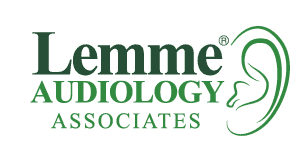Tinnitus Treatment
The primary objective for all currently-available tinnitus treatment options is to lower the perceived burden, allowing the patient to live a more comfortable, unencumbered, and content life.
There are several well-established therapies for patients struggling with severe, chronic tinnitus.
General Wellness: The perceived intensity of this symptom can fluctuate depending on many factors, including the patient’s overall well-being. There are simple (and often free!) things patients can do that may alleviate some of the burden.
Hearing Aids: Tinnitus overwhelmingly connects to some level of hearing loss. Augmenting the reception and perception of external noise can often provide relief from the internal sounds.
Sound Therapies: Tinnitus is a non-auditory internal sound. But patients can use real external noise to counteract their perception and reaction. Sound masking can cover the sound of tinnitus, while more advanced therapies may provide more robust relief.
Behavioral Therapies: Tinnitus can generate strong, negative emotions like anxiety, depression, and anger. Patients can learn to control their emotional reactions and thereby disassociate it from painful negative behavioral responses.
Drug Therapies: There are currently no FDA-approved drugs specifically for this symptom. However, there are pharmacological options to address the stress, anxiety, and depression that is caused by (and can sometimes exacerbate) it.
TMJ Treatments: In some cases, tinnitus is caused by physiological functions or disorders within the body. In these less-common situations, addressing the baseline physical cause may eliminate or drastically reduce symptoms.
Find out more information:
Request an Appointment:

